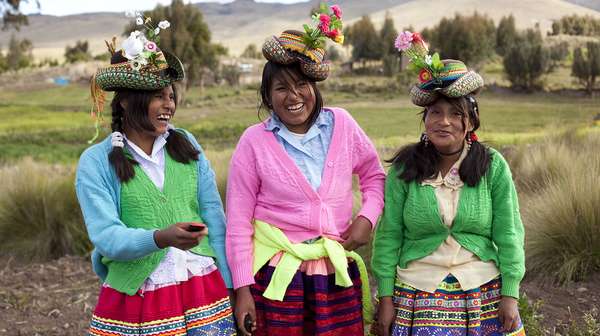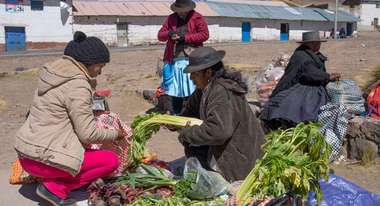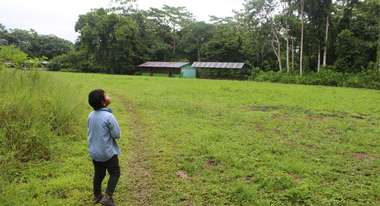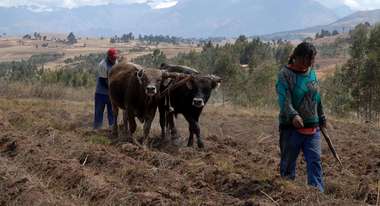How Welthungerhilfe helps in Peru.
From now on, our Voices will be heard
The alpaca breeders of Castrovirreyna in the Peruvian Andes no longer have enough pasture and water for their animals. When a gigantic irrigation system was built, neither the government, the investors nor big businesses respected the needs and rights of the breeders.
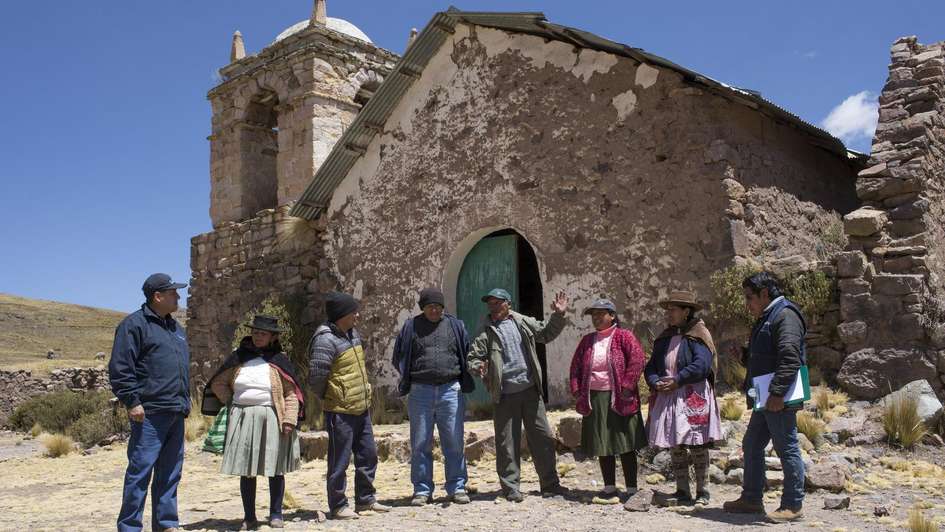
The alpaca breeders of Castrovirreyna in the Peruvian Andes no longer have enough pasture and water for their animals. When a gigantic irrigation system was built, neither the government, the investors nor big businesses respected the needs and rights of the breeders. Welthungerhilfe and the Peruvian Centre for Social Studies (CEPES) are collaborating to help the Quechua families to peacefully claim their rights to water and land and to stave off poverty.
Hilda Machuca is knitting a sweater. At this icy altitude of 4,500 metres, sweaters can be quite handy. After covering the cost of the wool, she is left with EUR 13 for an entire week’s work. “I never used to knit,” says the small woman. “We used to earn our living breeding alpacas.” For centuries, this was the only, yet stable, income source for Quechua families. In the barren heights of the Andes, little can grow besides potatoes, barley or pasture grass for the alpacas. Even when life was hard, the families used to be able to make a living selling their livestock, wool and meat. “We were poor, but we never went hungry,” recalls Hilda Machuca.
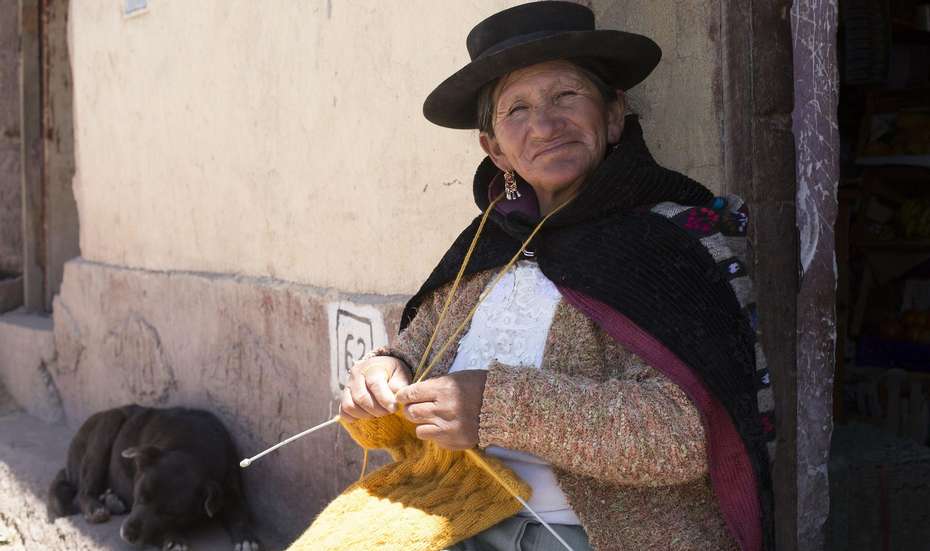
She used to earn her living breeding alpacas
However, the Peruvian government then decided to expand industrial agriculture on the Pacific coast. Massive amounts of water had to be procured for the huge, new fields, so a 4,500 dam wall was built at Lake Choclococha. From there, the water now flows through a 53-kilometre-long canal to the coast to boost vegetable cultivation, which is mainly for export.
For Hilda Machuca and the other alpaca farmers, this was catastrophic: “When the reservoir dam was built, the water could no longer disperse, raising the water level so far as to flood our village. We had to build a new village further up the mountain – without any compensation.” Because the canal now diverts all water resources to the coast, the surrounding pastures are drying up, the alpacas are left without food, and the smallholders are losing their crops to droughts. Hilda Machuca fears that she will ultimately lose all of her herd, which has already shrunk by a third.
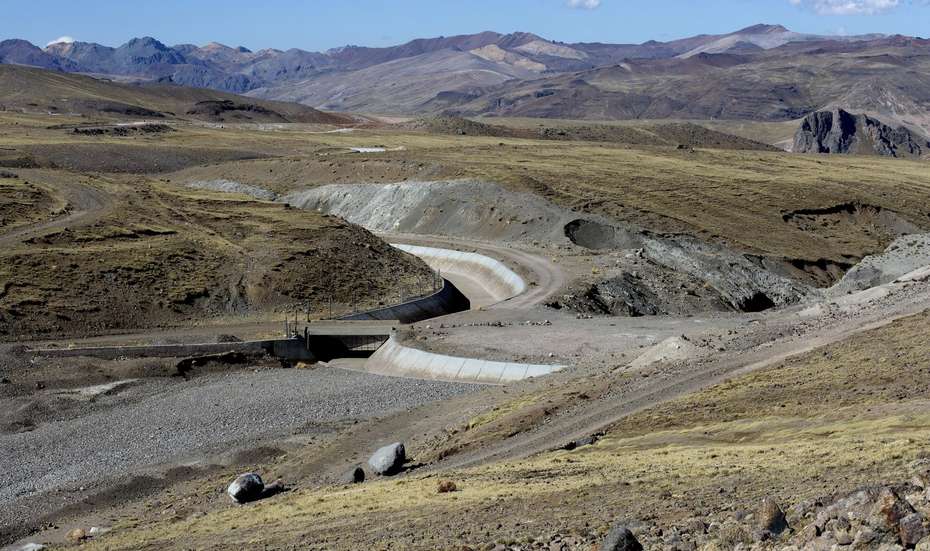
The water benefits only a few
“This is a clear case of denial of water“, says Welthungerhilfe employee Javier Alarcón. “We will help to restore the people’s rights.” Huancavelica is one of the country’s poorest regions despite its wealth of mineral resources, water and wood. “However, only private export companies have so far profited from these resources. Smallholders, on the other hand, are fighting for their land and therefore their survival,” explains Javier Alarcón.
The poverty rate has reached almost 50%, with the gap between rich and poor expanding ever further. Large parts of the population continue to be excluded from the economic upturn, since the growth of industrial agriculture is coming at the expense of the smallholders and members of indigenous communities, i.e. people like Hilda Machuca. Welthungerhilfe, in conjunction with the Peruvian Centre for Social Studies (CEPES), wants to help them to secure a strong foundation for their agriculture- and livestock-based livelihoods. A new approach is being employed, focussing not on material support or training, as in the past, but rather on help to be heard, to gain political influence and to claim their rights.
Access to natural resources is regulated
The stage has been set: In 2012, Peru signed the United Nations’ Voluntary Guidelines on the Responsible Governance of Tenure of Land, Fisheries and Forests. The government thereby accepted obligations such as conducting environmental studies and involving the population in the project planning process. The Guidelines represent the first instrument of international law to regulate fair access to natural resources throughout the world.
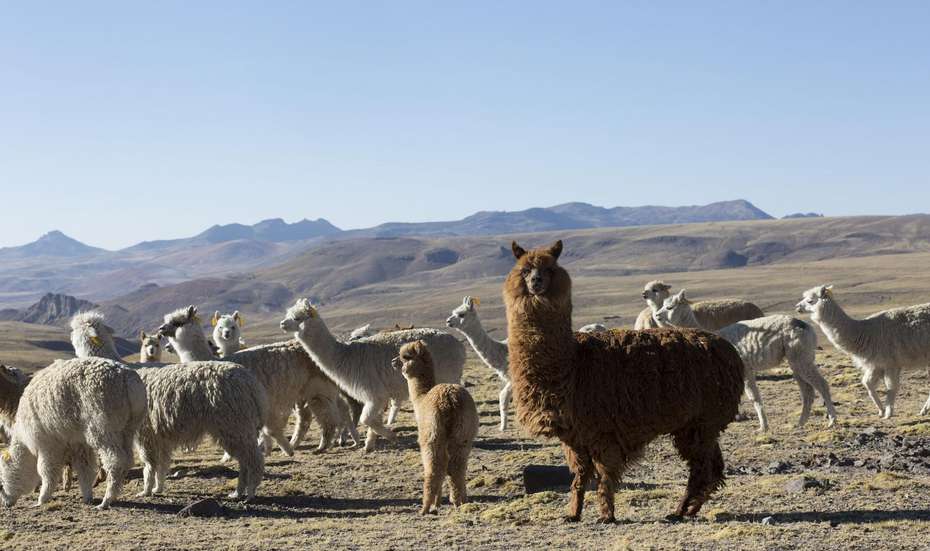
However, you cannot claim your rights if you are not aware of them. Welthungerhilfe and CEPES have made it their mission to address this issue. Educational campaigns inform people of their legal rights, and workshops teach them how to present their own plans and how to influence representatives with a unified voice. A data platform regarding land tenure as well as networking with other organisations offers everyone a transparent view of events in the region.
Exodus of youth due to lack of prospects
Collective action is urgently necessary, since the Ministry of Agriculture has decided to expand the irrigation system of Huancavelica, which project will include the construction of another canal. Hilda Machuca is horrified: “Our pastures have already been cut up by the canal, and thirsty animals and even people are drowning because the bank is not secured. The land is drying up more and more, crop yields are approaching zero, and young people are moving to the cities because they do not see a future here.”
The residents now know that they are in the right and that they do not have to accept everything that is happening. Welthungerhilfe and its partners are conducting workshops in order to ensure that developments remain constructive and peaceful. The first milestone has already been reached: Since August 2015, government representatives have been meeting with smallholders, businesspeople and community representatives in round-table talks.
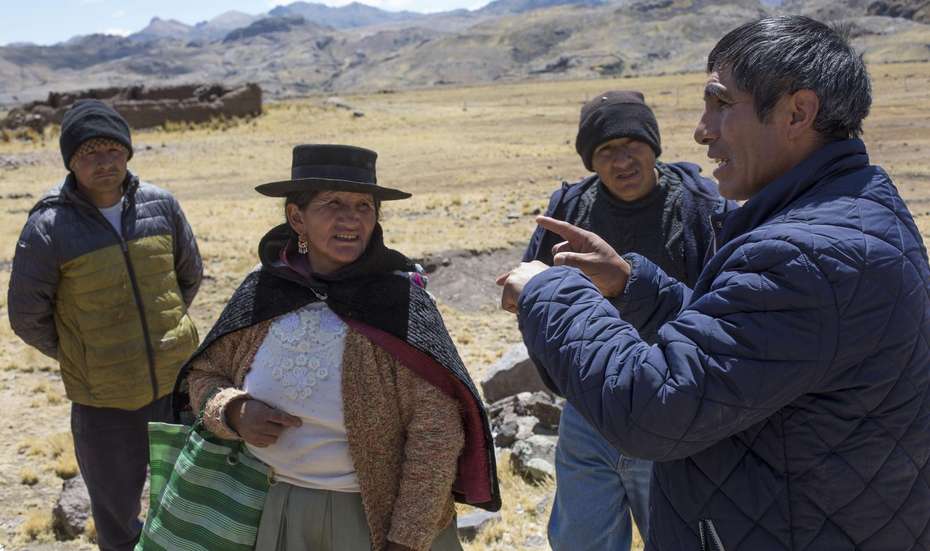
Their voices are being heard for the first time
Pedro Cabrera, head of the Huancavelica regional environmental ministry, praises the project: “CEPES has managed to help us to communicate openly and to better understand each other. We can present our concerns to the communities and, in turn, hear the suggestions of the farmers’ representatives and incorporate them into our activities.”
Hilda Machuca and the other 5,000 Quechua families in the project region are justifiably hopeful that their voices will be heard for the first time in the history of Peru. They hope that their urgent demands for sustainable water management will be taken seriously. This includes, for example, that the water sources and hill moors of their home be better protected, that not all the water be commercially diverted, and that their animals once again have sufficient fertile pastures. Hilda Machuca and her neighbours cannot turn back the clock, but they have gained enough knowledge and self-confidence to actively participate in shaping the future.





